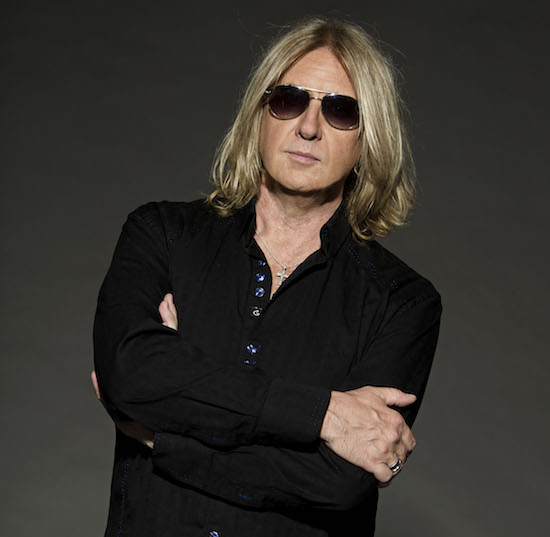Does any band sum up stadium rock dynamics more absolutely than Def Leppard? They build songs to reach the most unwieldy contours of spaces designed for purposes other than music; to bounce around the concave enormodomes of the Mid West, hit the far corners of Canadian ice hockey arenas or power through to the back of Wembley. It’s music made to punch through, no matter how far back you’re standing. Listen to the gaps Rick Allen leaves between each mighty kick – it’s like he’s factoring in the spacial reverb. This is a band who have always been unashamedly primed for the biggest stages. Formed in Sheffield in 1977, the music press sought to associate Leppard with the nascent NWOBHM movement but they had little to do with it musically. Iron Maiden, Diamond Head, Angel Witch, Saxon et al were galloping along rough shod with fantastical lyrical themes. Leppard, meanwhile, were ploughing a more traditionalist hard rock furrow more closely aligned with the bombastic arena dynamics of the likes of Kiss, Montrose and Aerosmith, alongside a distinct British glam influence. After 1980’s debut LP On Through The Night they worked with pin drop perfectionist producer Robert ‘Mutt’ Lange and – under his fastidious tutelage – began the painstaking approach to making rock records that would become their studio hallmark.
Lange approached rock with a truly forensic eye – he wanted perfection and multiple hit singles.1983’s multi platinum Pyromania shaped the bands sound in the popular imagination. Singles ‘Photograph’ and ‘Rock of Ages’ both reached heavy rotation in the early MTV era: bombastic hard rock with terrace shout choruses, layered overdubs and more sheen than a speedfreaks bathroom. 1987’s Hysteria, meanwhile, remains one of the biggest selling rock records in history. They’d wanted to create the rock equivalent to Michael Jackson’s Thriller. Rock albums never had more than two or three singles. Hysteria had seven. It took them three fastidious years to record and sold 25 million copies.
During the grunge years (and into the 00s) Leppard – like many of the bigger 80s rock bands – suffered the inevitable downturn, releasing albums to diminishing critical and commercial returns while remaining a massively successful live proposition. They also remained the last big 80s band to hold out on digital distribution of their back catalogue, only getting a deal sorted earlier this year as Joe Elliott explained to me in the fittingly rock surroundings of Soho’s Gibson Rooms, where vintage Les Pauls hang from the walls.
”Digital wasn’t a part of our record deal initially.” he says ”When the deal lapsed, neither side wanted to extend it so there was no outlet for our digital. We spent god knows how many years ignoring it or thinking ‘oh, we’ll do it next year’ but then we were always too busy. It was us and AC/DC: the last of the holdouts (laughs). Once we knew it was in place we had to spend a huge amount of time finding the back catalogue and remastering it. We could have put the stuff up months ago but we thought we’d wait as were announcing the tour. Because of the way the internet is – information by the bloody nanosecond – you have this constant drip feed of information. But we didn’t want a dripfeed. We wanted a firecracker! We wanted an earthquake! (LAUGHS) If only for one day.… So: we thought we’d announce the US tour, the UK tour and the digital news all at the same time. It makes 2018 an ‘event year’ instead of just another year. And we sold out the 02 in one morning, which was mad. So we’re adding Wembley now”
Funny, down to earth and possessing both an encyclopaedic knowledge of glam rock and a gruff Sheffield baritone that betrays his years spent screaming to ye gods, this is Joe Elliot’s Bakers Dozen. Click the picture below to begin reading his selections.


